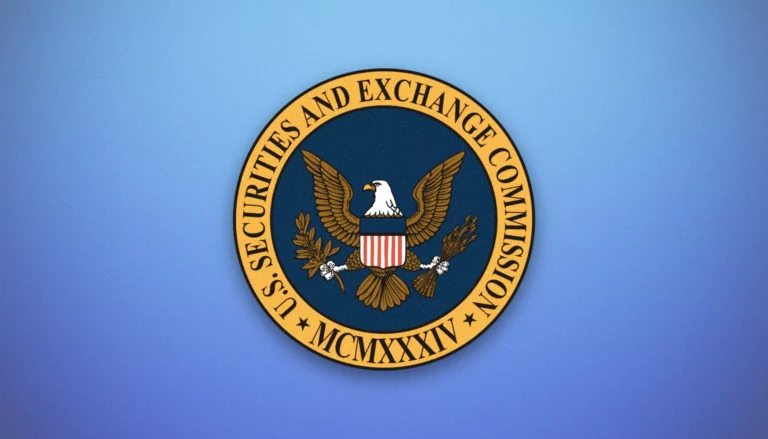Bruce Karpati, Chief of the SEC Enforcement Division’s Asset Management Unit, gave a speech entitled “Enforcement Priorities in the Alternative Space” on December 18, 2012. The recently established 75-member Asset Management Unit (AMU) is dedicated to investigating investment advisers, investment companies, hedge funds, mutual funds, and private equity funds making up the “alternative space” referred to in the speech’s title. Karpati addressed current enforcement priorities, touching upon, among other topics, the AMU’s enhanced expertise, investor risks, and how the hedge fund operating model incentivizes misconduct. As outlined in Karpati’s speech, the AMU’s current priorities indicate that, while traditionally hedge funds and private equity funds were lightly regulated, this will likely no longer be the case.
The loose regulation of private funds results from the assumed sophistication of the investors involved, the burgeoning market, increased industry specialization, and regulatory changes mean that unsophisticated investors are increasingly investing in private funds and even sophisticated investors are often unable to evaluate the risks involved in their investment. Unsophisticated investors are increasingly exposed to hedge funds indirectly through pensions, endowments, foundations, and other retirement plans. The increasing retail nature of hedge funds has encouraged wealthy but unsophisticated investors to invest directly. The upcoming elimination of the prohibition on general solicitation and advertising will expose a much broader pool of investors to what previously would have been private offerings. In addition, alternative investment vehicles often involve complicated investments that create significant opportunities for fraud, even when investors are relatively sophisticated. Finally, smaller hedge fund advisers — where most hedge fund fraud occurs — are exempt from registration under federal securities laws. As a result, they may not have effective compliance policies, are not subject to inspection by the SEC, and are not required to comply with SEC advertising rules for investment advisers. Karpati highlighted the AMU’s concern that unregistered advisers may fail to limit offerings to accredited investors or fail to abide by other restrictions placed on registered advisers.
Karpati went on to discuss how the hedge fund operating model itself gives rise to conflicts of interest and incentives to commit fraud. First, hedge fund managers are compensated by both management fees and performance fees, so they often have the incentive to overvalue assets or engage in riskier strategies. Hedge fund managers also face considerable pressures to yield high returns. Finally, it is easy for fund advisers to engage in related party transactions or give favored treatment to certain investors through preferential redemptions or side letters.
While the SEC previously focused on enforcement of the various rules and regulations governing investment advisers, such as violations of registration and disclosure requirements and failure to adopt and enforce compliance procedures, the AMU’s new priorities, as outlined by Karpati, cover the more amorphous area of an adviser’s ethical obligations to investors and clients. There are many ways that federal securities laws govern such ethical obligations, but two of the most significant are: (i) the Investment Advisers Act of 1940 places a fiduciary duty on investment advisers to their clients and (ii) the anti-fraud provisions of Investment Advisers Act and other securities laws place a duty of disclosure of conflicts of interest to investors. Karpati stated that fund managers must guard against all incentives — even unconscious — that might cause them to provide advice that is not disinterested. It is possible to commit a violation of these laws even if the breach does not actually intend to injure a client. In addition, an adviser can violate the law even if a client does not suffer actual injury.
To effectively carry out enforcement against these kinds of violations, the personnel conducting an SEC examination will need to operate on a more sophisticated level than merely trying to check off a list of requirements that the adviser was required to meet. Karpati revealed that the AMU has hired former industry professionals such as hedge fund managers, private equity analysts, and due diligence professionals. These experts have implemented certain risk-based analytic initiatives utilizing data analysis and designated risk criteria to identify individuals or firms that could be engaged in specific types of misconduct. One such initiative is the “Aberrational Performance Inquiry,” which targets hedge fund performance returns that seem too good to be true. Together with the Division of Risk, Strategy, and Financial Innovation and the Office of Compliance Inspections and Examinations (OCIE), the AMU’s experts analyze the performance data of thousands of hedge fund advisers and identify possible misconduct. This initiative has so far yielded seven enforcement actions against hedge fund advisory firms and managers for improper use of fund assets, fraudulent valuations, misrepresenting fund returns, failure to disclose related party transactions, and other misconduct. Another risk analytic initiative is the “Private Equity Initiative,” which seeks to uncover private equity fund advisers that pose a higher risk for certain misconduct, such as improperly failing to liquidate assets or misrepresenting the value of holdings to investors.
Just as enforcing standards of fiduciary duty and the duty to disclose conflicts of interest requires SEC enforcement personnel to think on a more sophisticated level, complying with these requirements will also require investment advisers and fund managers to consider their compliance practices on a more sophisticated level. Merely following bright-line rules may no longer be enough.
This article is for general information only. The information presented should not be construed to be formal legal advice nor the formation of a lawyer/client relationship.




